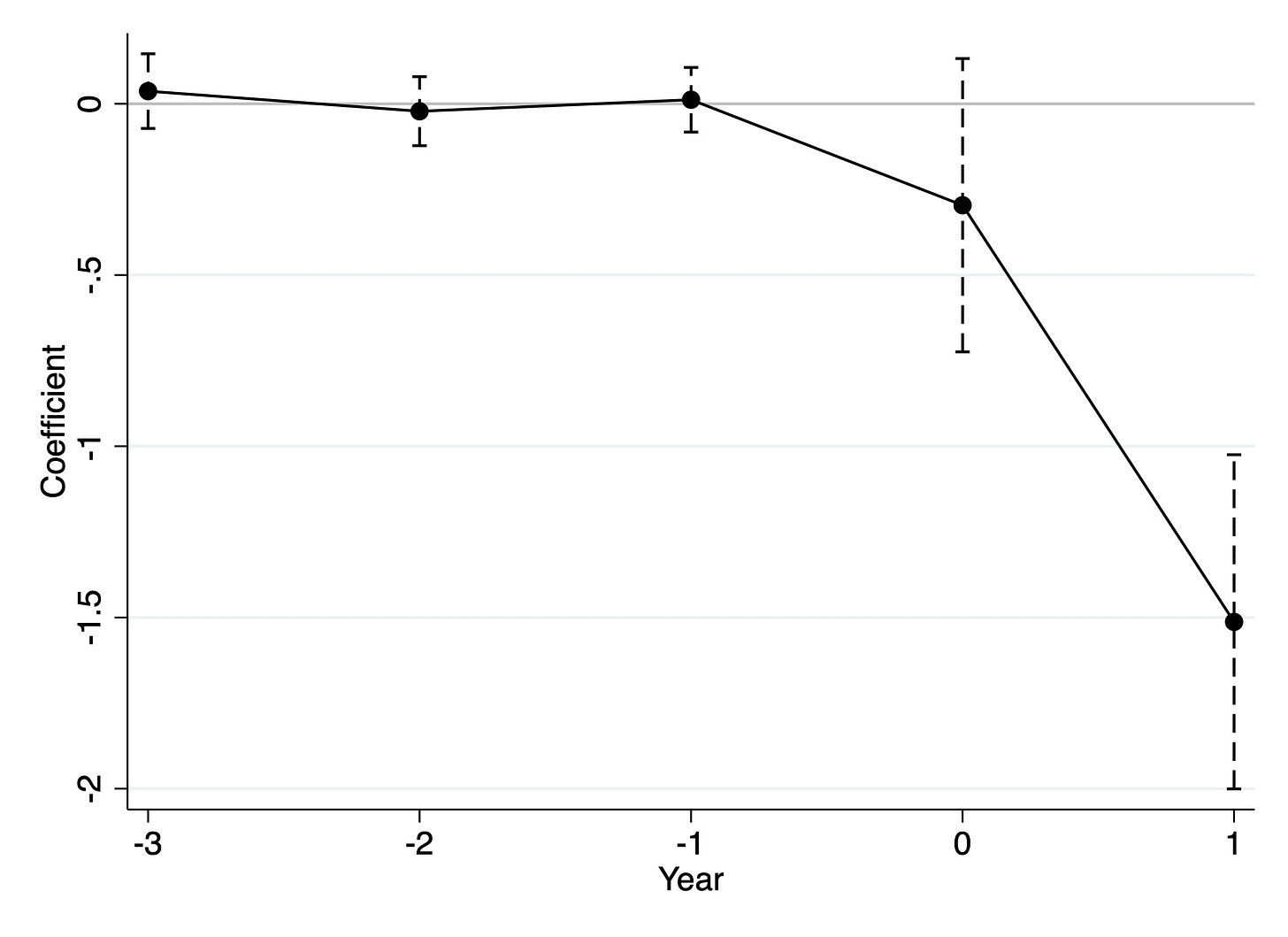The Dissertation Competition Report and Forthcoming Papers on Migration
Rebecca Ponce de Leon reports from Org Science Dissertation Competition finals while Gordon Scott brings you four forthcoming papers on immigration
A lot has been happening here in the Org Science ecosystem (did I use that correctly?) and in a surprise to no one, I’m still playing catch up. Last week saw two conferences that I go to every year simultaneously scheduled on completely opposite sides of the world: INFORMS in Seattle and SMS in Istanbul. Still traumatized by the random dude who hauled off and punched me on the streets at AOM Seattle a few years ago, I ended up in Istanbul for what I have to say was the best SMS I’ve been to. Okay, the truth is that I just didn’t plan very well. What I found so exciting about the SMS conference was watching the generational shift taking hold. As many of you know, I am so enthusiastic about the rising generations of mid- and early-career scholars who are bringing innovation and change in many places. The future of our broader field is theirs.
In today’s newsletter, Rebecca Ponce de Leon, Columbia Business School Professor and 2021 Org Science Dissertation Competition Winner, reports from the 2024 finals in Seattle, where Susie Choe (Michigan) emerged as the winner amidst an outstanding field of finalists. Check out the history of finalists and winners to get a sense of how important this has been over the years. I’m grateful for all the work that Rebecca and the other conference organizers and judges did, particularly given my absence, as well as all of you who submitted and competed, and to Columbia Business School for financially supporting this.
Meanwhile Gordon Scott introduces four more forthcoming papers, this time all on Migration. As many of you know, we have a special issue on this coming (hopefully) soon, likely in Issue 2 of 2025.
-Lamar
The 2024 Organization Science Dissertation Competition
This year, I had the great honor of chairing the INFORMS/Organization Science Dissertation Proposal Competition. For the uninitiated, the competition operates on a “you win it, you run it” system, so this was my special reward for winning back in 2021 (I’ll be interested to see if this divulgement lowers our submission rate next year).1
In all seriousness, this competition is dear to my heart and provides a special opportunity for students, junior faculty, and senior faculty to connect. Doctoral students receive constructive feedback on their dissertation work, junior faculty offer their insights on this emerging research as reviewers, and senior faculty provide mentorship to the finalists. Organizing this competition has been a labor of love in many ways, including the 9-month planning period to make it all happen, and I’m thrilled to share the results with you.
To understand how truly outstanding our finalists are, I want to give a peek behind the curtain. On June 19th, I opened ScholarOne to find that around 100 doctoral students had submitted a brief version of their dissertation proposal to the competition. From there, I put on my honorary AE hat and worked to find two junior faculty reviewers to (anonymously) review each (anonymized) proposal. Making this daunting task all the more humbling was the fact that about two-thirds of these proposals were macro, and I am very much not macro. I’m very grateful for Google scholar and macro friends, without which I may have not made it out alive. I’m also immensely grateful to the long list of reviewers I did eventually assemble.
Reviewers scored each proposal on its contribution to the field, theory development, methodological appropriateness, and clarity of writing, and provided optional comments. They also recommended whether the proposal should be accepted as a finalist or not. Out of all the submissions, our eight finalists received two “accept” decisions and the highest quantitative scores—no easy feat given the quality of the submissions and high standards of the reviewers.
While reviews were underway, I also assembled my senior faculty judging panel. After sending many (many, many) emails, I feel unbelievably lucky that eight of the most developmental, insightful, and straight up fun folks in the field agreed to spend a weekend in Seattle judging the competition. Thank you to Julia DiBenigno, Crystal Farh, Nicholas Hays, Laura Kray, Marc-David Seidel, David Tan, Peter Younkin, Emily Cox-Pahnke, and (last-minute) Basima Tewfik for sharing your time and expertise with me and our student finalists.
On October 19th, each of the eight finalists gave a 20-minute presentation followed by a 10-minute Q&A on their dissertation proposal to the judging panel. This is certainly not a stress-free experience, but the finalists absolutely wowed us over the course of the day. We were all impressed with their ambitious research questions, innovative approaches, and out-of-the-box thinking (and at times left to feel a bit sheepish about our own work). They are all pursuing big ideas that will push the field forward. Keep your eyes on these emerging scholars!
The winner of the 2024 INFORMS Dissertation Proposal Competition is:
Susie Choe (University of Michigan, Ross School of Business)
Identity-Based Competition: How Identity Shapes Producers’ Market Positioning and Stratification Processes
The runner-up is:
Nick Otis (UC Berkeley, Haas School of Business)
Essays on Entrepreneurship, Artificial Intelligence, and Firm Performance
The remaining finalists were:
Farzam Boroomand (University of Minnesota, Carlson School of Management)
Finding Inclusive Solutions to Grand Challenges: Evidence from US Public Education
Cynthia Feng (HEC Paris)
The Paradox of Multicultural Experiences: Exploring the Social Impact with Home Country Compatriots
Oguz Gencay (University of Maryland, Robert H. Smith School of Business)
Jazzing Through Task Uncertainty: The Improvisation Mindset as an Intervention
Piyush Gulati (INSEAD)
The Interplay of Structure, Skills, and Digital Technologies in Decentralizing Firms
Milton (Ming) Wang (Northwestern University, Kellogg School of Management)
Lessons from the Future and Hopes for the Past: Prospective Organizing of Risks in Contemporary Organizations
Shun Yiu (University of Pennsylvania, The Wharton School)
Algorithmic Governance: How Decentralization of Decision Rights Erodes Platform Participation
This is a very special competition, and it would not have been possible without the help of so many. Fortunately for me, the job of organizing is an intergenerational effort, and I had the indispensable support of the three winners who preceded me: Summer Jackson, Ronnie Lee, and Basima Tewfik. I can’t thank them enough for responding to every anxiety-laden voice note, text, and email along the way (there were many) and for generously sharing all their nuggets of wisdom about running this show. Additional big thanks to Lamar for his help along the way—there may have been some panicking without your reassurance, insider knowledge, and support. Many thanks to INFORMS managing editors extraordinaire Chris Asher and Jeff Elmore, without whom I wouldn’t have been able to navigate ScholarOne with any competency. Thanks to Best West at INFORMS for her assistance with logistics and day-of support. Lastly, big thanks to all AEs out there because I’ve now seen how the proverbial sausage is made.
Congratulations again to all of our finalists, our runner-up, and our winner!
-Rebecca Ponce de Leon
Forthcoming Papers on Migration
Hello everyone! My name is Gordon Scott. I’m a PhD student at Washington University in St. Louis, and, as Lamar’s student, I was easily accessible when he decided to create an outreach team for Organization Science. If your work is accepted here at Org Science, you will quickly hear from me as we work to feature all new articles here on Substack. I’m excited to be part of showcasing all of the amazing work that is being done in Organization Science now and in the future.
This week, we are highlighting several papers accepted earlier this year that delve into various interesting business implications of migration. Enjoy!
- Gordon Scott
Migration and Global Network Formation: Evidence from Female Scientists in Developing Countries
Caroline Fry, Jeff Furman
When can migrant scientists serve as brokers, bridging connections between their home and host countries? This study examines the capacity of female migrant scientists from developing countries to foster global network formation, focusing on how gender parity in their home and host nations influences their ability to build these connections. The findings show that female migrant scientists can only effectively share international networks with their non-migrant peers back home when both their home and host countries demonstrate high levels of gender parity. This highlights the critical role of institutional environments in enabling migrants to drive knowledge exchange and contribute to global network building.
Uncertainty and Immigrant Entrepreneurship: Evidence from Brexit
Camilo Acosta, Astrid Marinoni
How does uncertainty about immigration policies impact the creation of new businesses by immigrant entrepreneurs? While these entrepreneurs are vital to job creation and economic growth, increasingly unpredictable immigration environments may discourage them from establishing ventures in host countries. This study leverages the unexpected outcome of the Brexit referendum—when European Union citizens suddenly faced uncertainty about their future immigration status—to investigate how such uncertainty affects their choice of establishing a venture in the Great Britain. The findings reveal that heightened uncertainty significantly reduces the entry rate of these new firms, particularly those relying on other immigrant actors. Both low- and high-quality firms are affected: founders of low-quality ventures tend to shift toward employment, while founders of high-quality ventures are more likely to establish their businesses in other, more stable countries. Our results suggest that Brexit may have discouraged the entry of around 250 high-quality firms in Great Britain.
Refugee Hiring and Organizational Performance
Grazia D. Santangelo, Vera Rocha, Wolfgang Sofka
Why should host country firms hire refugees? Existing research has largely focused on how voluntary migrants contribute to firm performance. This study is among the first to explore the impact of involuntary migration, showing that firms can achieve higher profitability by employing refugees through two key mechanisms: effort and remuneration. First, refugees tend to work longer hours and are highly committed, which reduces turnover costs for firms. Second, they often accept lower wages due to limited bargaining power, resulting in reduced labor expenses. Analyzing nearly 28,000 firms in Denmark, the results show that these effects are most pronounced in high-turnover environments. This study offers new insights for managers and policymakers, illustrating how hiring refugees can align economic and social goals. It provides a compelling case for leveraging refugee talent to enhance firm performance while supporting societal integration.
Loss of Peers and Individual Worker Performance: Evidence From H-1B Visa Denials
Prithwiraj Choudhury, Kirk Doran, Astrid Marinoni, Chungeun Yoon
How do more restrictive immigration policies, which lead to the loss of skilled immigrant workers within organizations, affect the performance of their co-workers? The study explores this question by examining the surge in H-1B visa extension denials in the United States starting in 2017 and data at the employee level in a large technology firm in Silicon Valley. While the loss of a team member has negligible positive effects on remaining workers in general, the authors find a marked decline in performance when individuals lose co-workers of the same ethnic background. The paper also shows that disrupted knowledge channels is the primary driver of this decline, particularly for workers assigned to less typical tasks and junior employees losing senior co-ethnic colleagues. Additionally, small and ethnically homogeneous teams experience heightened impacts. These findings suggest that the breakdown of co-ethnic knowledge sharing and learning exacerbates the negative effects of such losses.
We’re going to change this structure for 2025, since as Rebecca notes, it’s a big burden for a junior faculty. It might also explain why the runners up are always super happy to finish second.










